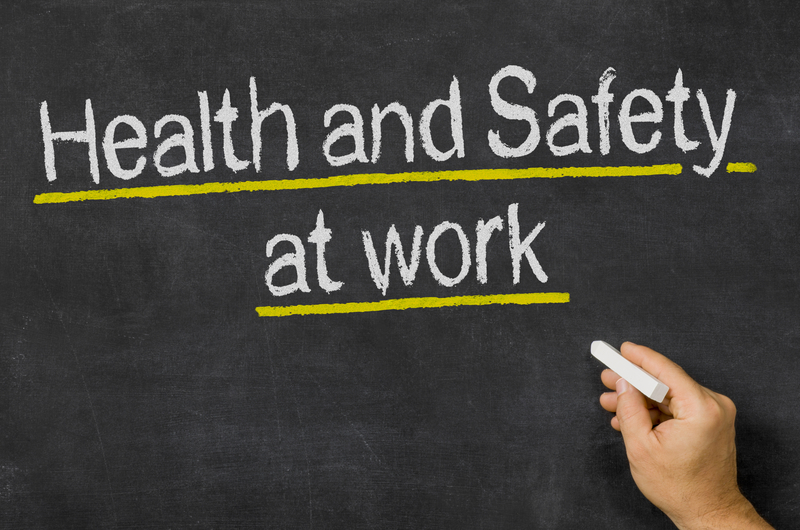In today’s rapidly evolving educational landscape, online courses have become increasingly popular, offering students the flexibility to learn at their own pace from the comfort of their homes. While the convenience of e-learning is undeniable, it also brings with it a set of unique challenges, particularly in the realm of health and safety. In this digital age, educators and institutions must prioritize the well-being of their students, creating a secure and ethical environment for online learning. This article explores the crucial importance of e-learning ethics and how institutions, educators, and, yes, even specialized professionals like health and safety consultants play a vital role in ensuring the safety and well-being of online students.
The Rise of Online Education
The advent of the internet has transformed education, making it more accessible to a global audience. Online courses have broken down geographical barriers, enabling learners to pursue their academic goals regardless of their physical location. However, as online education has grown, so too have concerns about its ethical and safety implications.
Protecting Student Privacy
One of the foremost ethical considerations in online education is the protection of student privacy. In a digital classroom, students are often required to share personal information, such as their names, email addresses, and sometimes even sensitive data like birthdates or medical information. Educators and institutions must implement robust privacy policies and cybersecurity measures to safeguard this information from unauthorized access or data breaches. Health and safety consultants can also contribute by evaluating these policies and recommending improvements to ensure the utmost protection of student data.
Ensuring a Safe Learning Environment
Creating a safe online learning environment is paramount to the success of e-learning initiatives. This safety extends beyond the digital realm and includes addressing issues like cyberbullying, harassment, and inappropriate content. Online instructors should actively monitor discussions and interactions within their courses, promptly addressing any concerns that arise. Moreover, institutions can engage health and safety consultants to assess the overall safety of their online learning platforms, ensuring they are free from any potential risks that could harm students’ psychological or emotional well-being.
Accessibility and Inclusivity
Ethical considerations in online education also encompass accessibility and inclusivity. It’s essential to ensure that online courses are accessible to students with disabilities, adhering to guidelines like the Web Content Accessibility Guidelines (WCAG). Ethical e-learning practices demand that institutions and educators make reasonable accommodations to ensure that all students, regardless of their abilities, can fully participate in online courses. Health and safety consultants, while not directly involved in accessibility efforts, can help institutions identify potential safety hazards in their physical facilities to ensure they are welcoming and accommodating for all students.
Academic Integrity and Plagiarism
Maintaining academic integrity is another vital aspect of e-learning ethics. In online environments, it can be challenging to prevent cheating and plagiarism. Educators must implement rigorous assessment strategies and utilize plagiarism detection tools to uphold academic honesty. Moreover, institutions can engage health and safety consultants to evaluate the security of their online assessment systems, ensuring that students cannot gain unauthorized access to exam materials or engage in dishonest practices.
Addressing Mental Health Concerns
The mental health and well-being of online learners are crucial ethical considerations. Prolonged screen time, isolation, and the pressures of online coursework can take a toll on students’ mental health. Educators should actively support students’ emotional well-being, providing resources for counseling and mental health assistance. Health and safety consultants, with their expertise in creating safe physical environments, can also collaborate with mental health professionals to develop guidelines for promoting mental well-being in the online learning space.
A Collaborative Effort
Ensuring health and safety in online education is a collaborative effort that involves educators, institutions, students, and, in some cases, health and safety consultants. These professionals, while not typically associated with the education sector, can provide valuable insights into creating safe physical spaces within educational institutions. By assessing the safety of classrooms, labs, and other on-campus facilities, health and safety consultants contribute to the overall well-being of students, whether they attend in-person classes or engage in e-learning.
In conclusion, as online education continues to shape the future of learning, it is imperative that we prioritize health and safety in this evolving landscape. E-learning ethics encompass a wide range of considerations, from protecting student privacy to promoting mental well-being. While health and safety consultants may not be a conventional part of the education sector, their expertise in creating secure physical environments makes them valuable contributors to the ethical framework of online education. By working together, educators, institutions, and health and safety consultants can ensure that online learning remains a safe, inclusive, and ethical option for students around the world.


